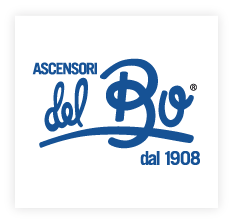
La Scala Mobile è un impianto elevatore per il trasporto di persone, brevettato dal suo inventore, l'americano Jesse W. Reno, il 15 marzo 1892.
Ai nostri giorni la scala mobile è considerata macchina ed in quanto tale segue la legislazione della Direttiva Macchine e la norma armonizzata EN 115 come guida per le fasi di costruzione ed installazione in sicurezza.
La scala mobile è dotata di gradini generalmente metallici, mobili orizzontalmente nei due sensi di marcia, trascinati meccanicamente da catene rotanti su pulegge dentate calettate su di un gruppo argano motore. Il funzionamento naturalmente è completato da dispositivi di sicurezza in grado di prevenire condizioni di uso potenzialmente pericolose per l'utenza, oltre che dannose per l'impiantistica elettromeccanica di cui ogni scala mobile è dotata.
Le Scale Mobili Del Bo progettate per uso Privato, in edifici densamente frequentati, quali centri commerciali, ristoranti, alberghi e simili, sono caratterizzate da tecnologie all'avanguardia e da uno stile ricercato. Al riguardo la Del Bo propone il modello KLM.
Le Scale Mobili Del Bo progettate, invece, per uso Pubblico, garantiscono elevati standard qualitativi e di sicurezza dei passeggeri, in aeroporti, stazioni della metropolitana e ferroviarie. Per assicurare valore e durata in ambienti con traffico elevato, le scale mobili devono garantire il massimo in termini di prestazioni e affidabilità. Le nostre scale, infatti, assicurano un servizio regolare per circa 140 H/settimana, con un carico pari al 100% del carico di frenatura, per almeno 0,5 h in un intervallo di tempo di 3 h.
In aeroporti e stazioni ferroviarie, la Del Bo propone il modello di scala mobile Heavy Duty KLT.



